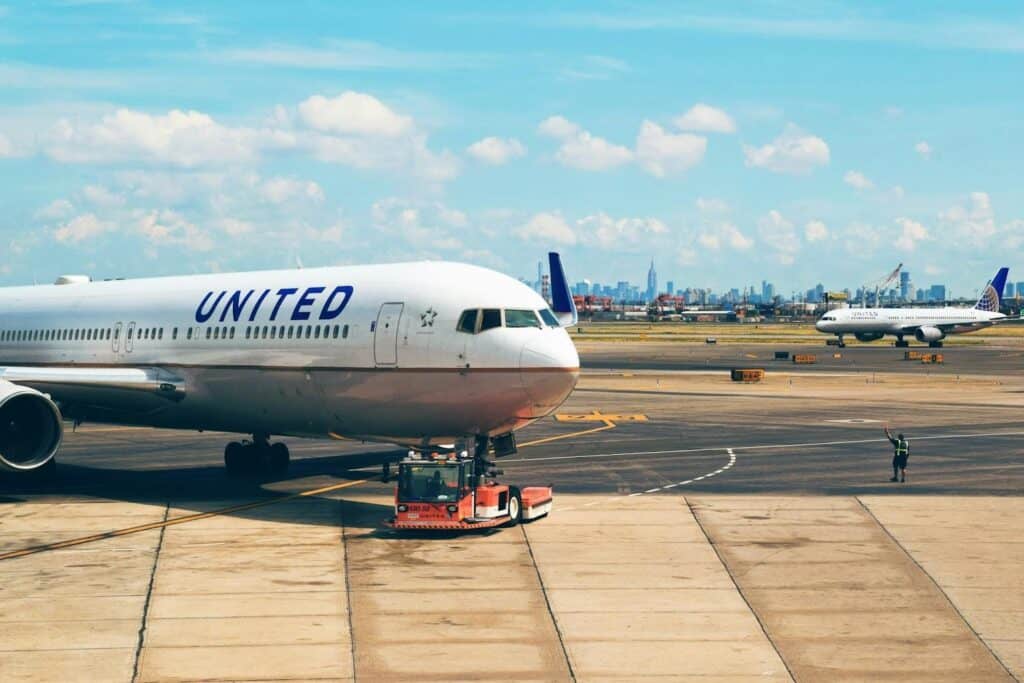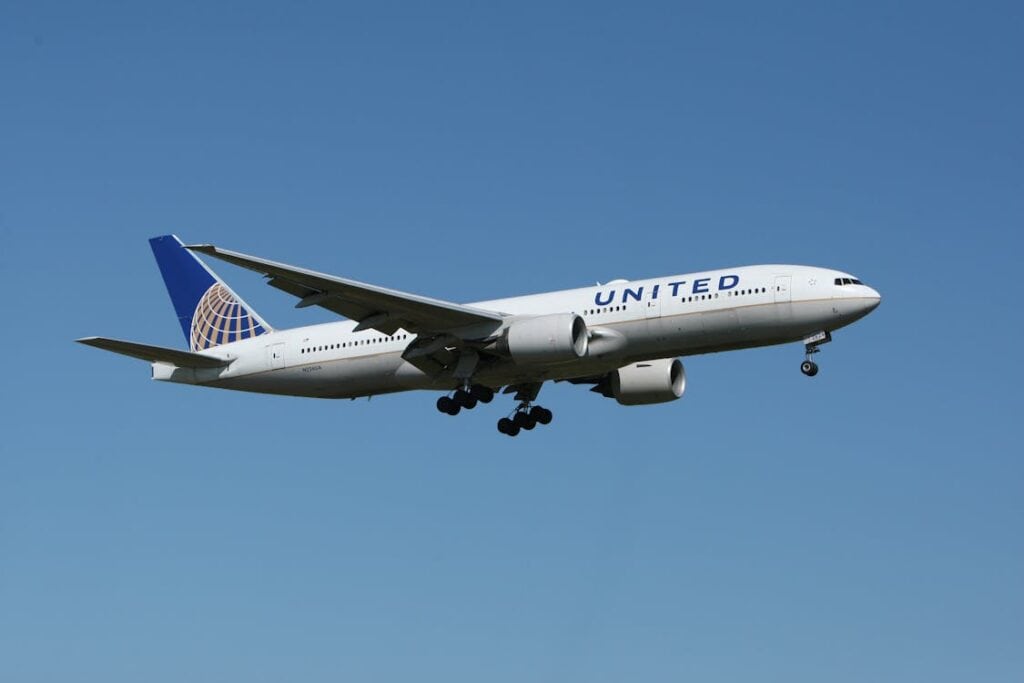Choosing a career in commercial aviation can be a rewarding and exciting decision. Whether you aspire to be a pilot navigating state-of-the-art aircraft or a flight attendant ensuring passenger safety and comfort, the aviation industry offers diverse opportunities.
Table of Contents
The demand for skilled professionals is consistently high, driven by the growing number of global travelers and advancements in aviation technology.
This guide will explore the numerous benefits of a career in commercial aviation, shedding light on the job security, competitive salaries, opportunities for travel, and personal satisfaction that come with this dynamic field.

Job Security and Career Stability
Commercial aviation stands out for its remarkable job security and career stability. The continuous expansion of the aviation industry, bolstered by increasing global travel demand and technological advancements, ensures a steady need for skilled professionals.
Pilots, flight attendants, air traffic controllers, and aviation engineers can often enjoy long and stable careers, well protected from the cyclical ups and downs that may affect other industries.

The aviation industry’s robust regulatory framework and emphasis on safety create an environment where professionals are highly valued and continuously needed.
Airlines and aviation companies prioritize retaining experienced personnel, contributing to the overall job security that the sector offers. This sense of stability can allow professionals to plan their futures with greater assurance and confidence.
Training and certifications in the aviation sector add another layer of career stability. With globally recognized qualifications, individuals possess skills and credentials that are transferable worldwide, further enhancing their employment prospects.
Such certifications ensure that aviation professionals remain competitive and relevant in an ever-evolving industry. With airline pilot school programs and other training options available, individuals can invest in their education and continue to advance their careers.
This commitment to continuous learning and growth is another factor that contributes to the long-term job security of those working in commercial aviation.
Competitive Salaries and Benefits
One of the most appealing aspects of a career in commercial aviation is the potential for competitive salaries and robust benefits packages. Pilots, in particular, can earn lucrative wages that increase significantly with experience, seniority, and the type of aircraft flown.
Similarly, flight attendants, despite typically earning less than pilots, can also receive competitive pay, particularly when factoring in international flights and overtime. Beyond base salaries, aviation professionals often enjoy additional financial perks such as annual bonuses, profit-sharing schemes, and generous retirement plans.
These benefits ensure a stable financial future and contribute to a higher overall standard of living. Many airlines offer attractive health insurance packages that cover medical, dental, and vision care for employees and their families.
The nature of the aviation industry means many employees benefit from travel-related perks. These can include discounted or even free flights, hotel accommodations, and other travel-related expenses, significantly enriching the overall compensation package and allowing aviation professionals to explore the world affordably.
Opportunities for Travel and Exploration
A significant draw for many aspiring aviation professionals is the unparalleled opportunity for travel and exploration. Pilots and flight attendants, in particular, have careers that encapsulate the essence of adventure, enabling them to visit new and often exotic destinations regularly.
This unique aspect of the job allows professionals to experience diverse cultures, cuisines, and global landmarks as part of their daily routine. The travel opportunities extend beyond layovers and work-related journeys.
Aviation professionals frequently receive travel benefits that allow them and their families to enjoy discounted airfare, making personal travel more affordable and accessible. This encourages a lifestyle of exploration, adventure, and lifelong learning.
Travel experiences also have tangible professional benefits. Exposure to different cultures and environments fosters a more adaptable and culturally aware workforce. Such traits are highly valued in the globalized aviation sector, where professionals frequently interact with individuals from varied backgrounds.
Personal Satisfaction and Fulfillment
Working in the aviation industry can bring a deep sense of personal satisfaction and fulfillment. The responsibility of ensuring the safety and comfort of passengers, combined with the joy of meeting new people daily, creates an engaging and meaningful work environment.
For many, the thrill of flying and the pride in mastering complex skills like aircraft navigation or emergency response contribute to a profound sense of personal accomplishment. The aviation sector offers abundant opportunities for professional growth and development.
Continuous training, simulations, and real-world problem-solving ensure that aviation professionals are always honing their skills and expanding their knowledge. Such a dynamic and challenging environment fosters continuous personal and professional growth.
The aviation industry’s community aspect also plays a crucial role in job satisfaction. Working closely with like-minded individuals who share a passion for aviation creates a strong sense of camaraderie and teamwork.
This network of colleagues and peers often forms a support system, enhancing the overall job satisfaction and sense of belonging within the aviation community.
Advanced Technology and Innovation
The aviation industry is a hub of advanced technology and innovation, making it an exciting and intellectually stimulating environment to work in.
From state-of-the-art aircraft equipped with cutting-edge avionics to ground-breaking air traffic management systems, the sector constantly pushes the boundaries of what is possible in travel and transport.
For aviation professionals, this means continuous exposure to and interaction with the latest technological advancements. Pilots and engineers, for instance, often receive training on the newest aircraft models, keeping their skills current and their jobs engaging.
This constant evolution ensures that no two days are the same, providing continuous learning opportunities and professional growth. Innovation in aviation is not limited to aircraft alone.
The industry’s commitment to safety, efficiency, and sustainability means that professionals are also involved in developing and implementing new safety protocols, fuel-efficient technologies, and eco-friendly practices.
This involvement in pioneering work fosters a sense of pride and purpose, as individuals contribute to the growth and betterment of the entire aviation ecosystem.
Contributing to Global Connectivity
One of the most profound impacts of a career in commercial aviation is the contribution to global connectivity. Aviation professionals play a vital role in linking people, cultures, and economies, facilitating the seamless exchange of ideas, goods, and services across continents.
This interconnectedness underpins the global economy and enriches lives worldwide by fostering intercultural understanding and cooperation. Aviation serves as a critical lifeline during emergencies, disasters, and humanitarian crises.
The ability to transport medical supplies, food, and rescue teams swiftly to affected areas showcases the industry’s indispensable role in global relief efforts. Professionals working in aviation can take immense pride in their contributions to such critical missions.
The aviation industry’s role in promoting tourism and economic development cannot be understated. By making distant destinations accessible, aviation drives tourism, creates jobs, and stimulates local economies.
As such, aviation professionals are integral to the prosperity and development of regions around the world, adding another layer of significance to their careers.
Comprehensive Training Programs
The aviation industry is renowned for its comprehensive training programs, designed to ensure the highest standards of proficiency and safety. Prospective pilots undergo rigorous training, including extensive classroom instruction, simulator training, and actual flight hours under the supervision of experienced instructors.
This thorough preparation ensures that they are well-equipped to handle the complexities of modern aircraft and various flight scenarios. Flight attendants also receive detailed training that covers a wide range of skills, from emergency response procedures and first aid to customer service and communication.
This training not only enhances their ability to manage in-flight operations effectively but also prepares them to handle any situation with confidence and professionalism. Such all-encompassing training programs are integral to maintaining the high standards of safety and service that define the aviation industry.
For ground staff and maintenance crews, specialized training programs focus on technical skills and safety protocols. These programs are crucial for ensuring the reliability and efficiency of aircraft operations.
By investing in the ongoing education and training of all personnel, the aviation industry fosters a culture of continuous improvement and operational excellence.
Diverse Career Pathways
A career in commercial aviation is not limited to flying planes or serving passengers; it encompasses a wide range of roles and specialties.
For instance, those with a technical inclination may find fulfilling careers as aviation engineers or aircraft maintenance technicians. These professionals play a critical role in ensuring that aircraft are safe, reliable, and ready for operation.
Air traffic controllers are another vital component of the aviation ecosystem. Their role is to manage the safe and efficient movement of aircraft both in the sky and on the ground.
This position requires exceptional concentration, quick decision-making skills, and the ability to manage high-pressure situations. It’s a specialized career path that offers both challenges and rewards. There are numerous opportunities in the administrative and operational sides of the industry.
From airline management and operations planning to marketing and customer relations, the aviation field offers a myriad of career paths that cater to different interests and skill sets. This diversity ensures that nearly anyone can find a suitable and rewarding career within the industry.
Work-Life Balance and Flexibility
A career in commercial aviation often provides unique opportunities for achieving a desirable work-life balance. Many aviation roles, such as pilots and flight attendants, operate on a flexible schedule that is typically based on flight rosters.
This roster system allows for extended periods of time off between flights, which can be used for personal activities, family time, or rest. The nature of the job allows aviation professionals to experience periods of intense work followed by significant downtime.
This dynamic can be especially appealing for those who appreciate variety and don’t thrive on a standard 9-to-5 routine. The flexibility inherent in many aviation roles can enable employees to pursue other interests or educational opportunities alongside their careers.
Beyond flexible scheduling, the industry also offers numerous support programs to enhance work-life balance. Many airlines provide wellness programs, mental health support, and other resources designed to help employees manage the unique demands of their roles effectively.
By promoting well-being and flexibility, the aviation industry helps its professionals maintain a healthy and satisfying work-life balance. A career in commercial aviation offers numerous benefits and opportunities that make it an attractive and fulfilling choice for many.
From competitive salaries and travel perks to personal satisfaction and growth, the industry provides a unique combination of factors that contribute to long-term job security and a rewarding professional experience.
Whether pursuing a passion for flying or seeking out diverse career pathways, working in commercial aviation offers an exciting avenue for those looking to take their careers to new heights.

Pursue A Career in Commercial Aviation – FAQs
1. What qualifications are required to become a commercial pilot?
To become a commercial pilot, you need a combination of educational background, flight training, and certification. Typically, aspiring pilots must have a high school diploma or equivalent, although a college degree in aviation or a related field is advantageous.
They must also complete flight training from a certified flight school, accrue a specific number of flying hours, pass written and practical exams, and obtain a commercial pilot’s license from the relevant aviation authority.
2. How long does it take to train as a flight attendant?
The training period for flight attendants typically ranges from 3 to 6 weeks, depending on the airline. This intensive training program includes courses on safety procedures, emergency response, customer service, and protocols specific to the airline.
Successful completion of this training is mandatory before new hires can begin their duties as flight attendants.
3. What are the career advancement opportunities in aviation?
The aviation industry offers numerous career advancement opportunities. Pilots can advance to senior positions such as captain or chief pilot. Flight attendants may progress to senior flight attendant or purser roles.
There are also advancement opportunities in management, training, and operational roles. Additionally, aviation professionals can specialize in areas like air traffic control, aviation safety, or airport management for further career growth.
4. What safety measures are in place for aviation professionals?
Safety is paramount in the aviation industry. Airlines and aviation authorities have rigorous safety protocols, continuous training programs, and regular medical examinations in place.
Aircraft undergo comprehensive maintenance checks, and technological systems like avionics are frequently updated to enhance safety. Additionally, aviation professionals receive ongoing training on emergency procedures and the latest safety regulations to ensure they are prepared for any situation.



